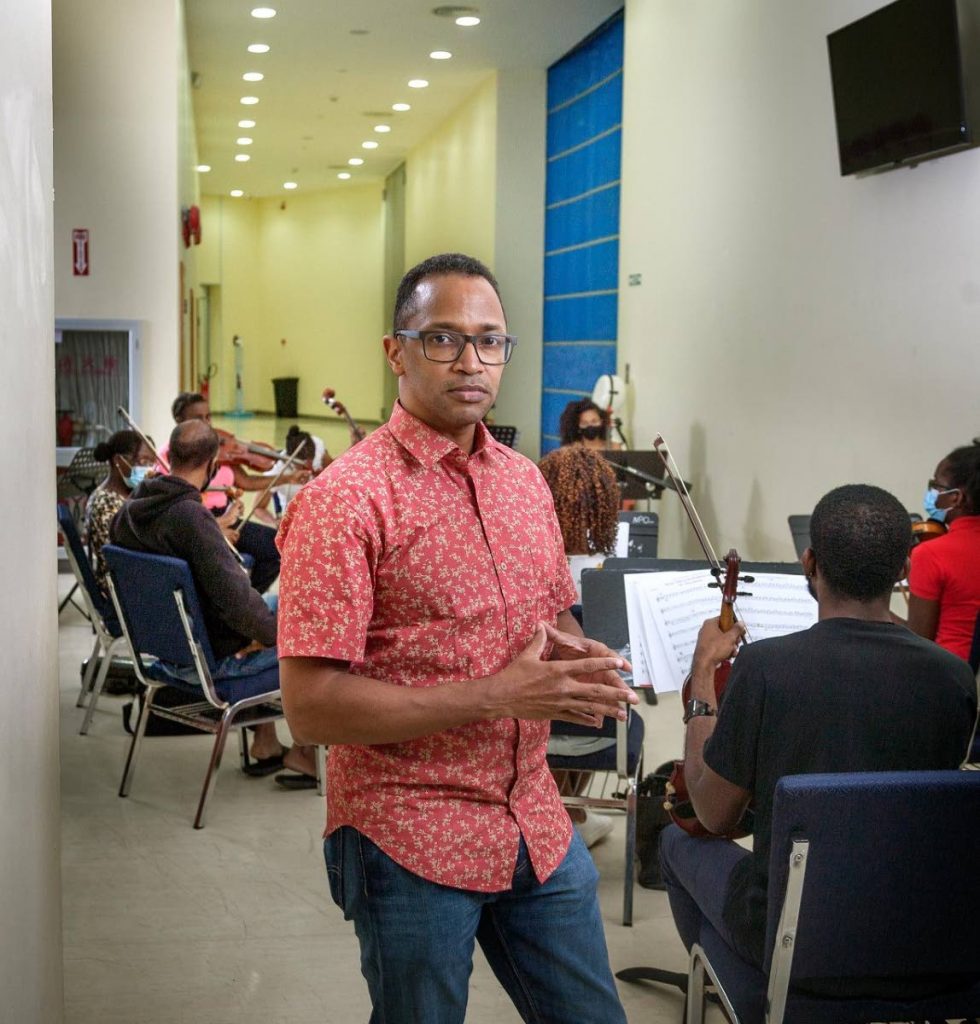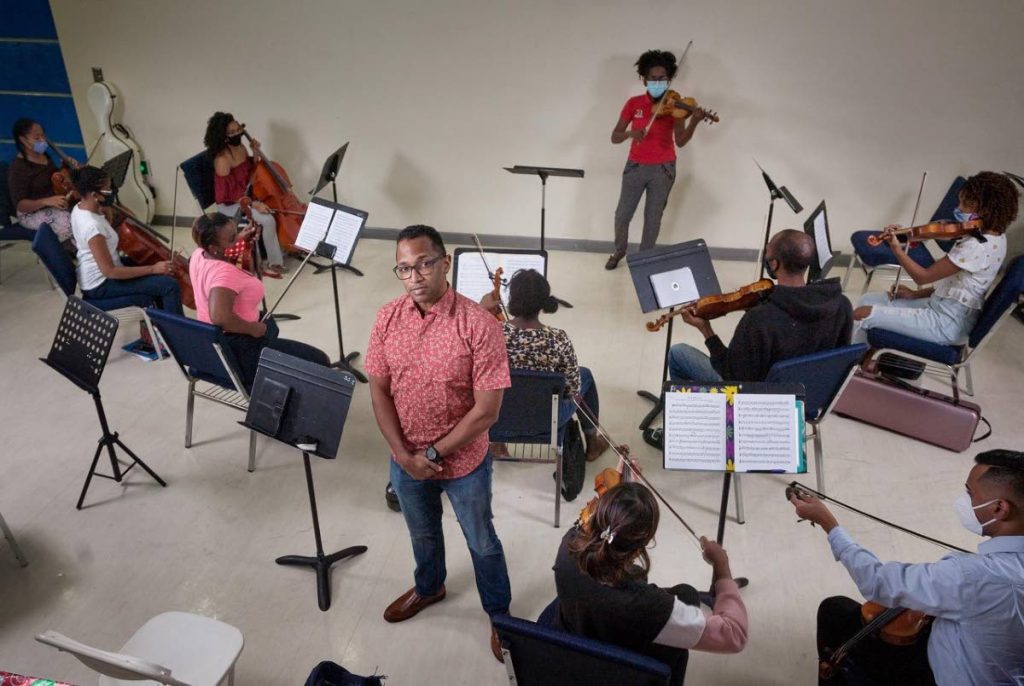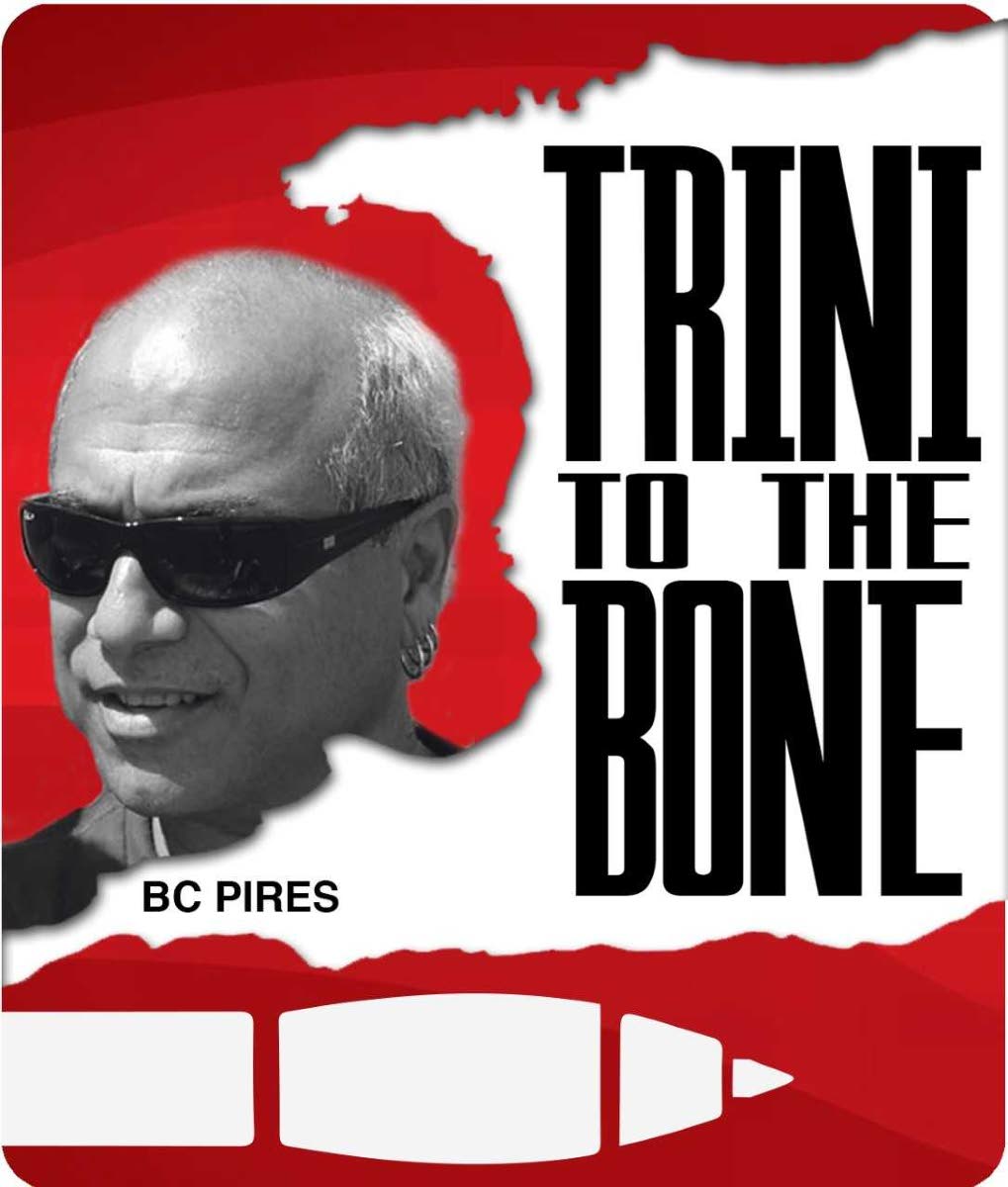Sonata from Panorama, for clarinet

AS TOLD TO BC PIRES
My name is Prof Roger Henry and my new clarinet sonata featuring Profs Yevgeny Dokshansky on clarinet and Hsiang Tu on piano will premiere tonight.
I’m a San Fernando boy, born literally at home in Torrance Street, Mon Repos. My mother was an instructor of midwifery.
I’m the youngest of four children and the only boy.
I’m gloriously single and live on my own but lockdown hasn’t been hard. I’m so much of a hermit, I just feel like I’m in my (natural) place. I’ve always been a little bit solitary.
I would say my childhood was lonely, but it’s such a difficult word to agree to. I prefer to think of myself as solitary.
You can be in a crowd and be lonely. You could be in a family and lonely.
I’m Christian in my faith. I believe in an afterlife and an omnipotent, omniscient God, capable of intervention in human affairs.
If BC Pires asks me why he never does, then, I say I think he does intervene but we don’t always perceive the intervention.
I don’t go to church. though.
I pride myself on having read everything Stephen King has written. As a great storyteller, he’s been influential to me. Because the story you’re telling has to connect with people where their experience lies.
This is part of what I try to do when I’m composing my stuff.
In functional tonality, there’s a conversation that happens in music between the tonic, the home, of a key and the dominant, the goal away from home, of a key. Look at the Happy Birthday song: Happy birthday to you-ou-ou; we’ve already reached a dominant space! Happy birthday dear BC, happy birthday to-oo-oo you-oo-oo! Now we know we’re home!
This sense of knowing when the music has reached back home is deep in the back of all our minds, that innate sense of how music should go.
And this is what I like to play with when I write. There is something I know that you expect, and I want to engage that – and then defy it!
It’s hard to talk about music when I look at it as a buffet and the person I’m talking to looks at it as…McDonald's!
If BC Pires says to me that Trinidadians reduce anything you could call “the life of the mind” to “a white people thing,” I know exactly what he means.
And my answer to that is that Panorama is the bridge. Panorama is not just music, but an event and a cultural expression.
The true pan aficionado does not get bored in Panorama. What they are experiencing is a musical moment that lasts for months and has inflection points at various stages of the competition.
(Panorama arrangers) aren’t “just arranging” – they are composing! And, after 60 years of experimentation, they have developed a series of tropes and common devices specific to the voice of the pan.
And they use them in deliberate ways to whip up the audience. The band makes a lot of noise and then, all of a sudden, hit… and get very, very soft. Then they crescendo! And the audience starts to scream!
And
that is deliberate.
Peter Minshall’s description of Carnival and why he designs what he does has been another inspiration for me. Because it’s a complete revelling in the Trinidadianness of a thing.
When Minshall starts talking about, “the mas,” you want to sit down and listen forever. Because it’s a high concept of who we are, how we see ourselves and what we value.
I push the idea of recontextualising our calypso melodies.
Not because I believe they belong on a violin or an oboe but because I believe these melodies stand up to scrutiny wherever you play them. Because they are beautiful (by and in) themselves. Wherever (and however) you play them, they will sing!
With the National Philharmonic Orchestra, I reinterpret the calypso melodies we know as orchestral arrangements. I’m trying to get people to stop arguing that “this music don’t belong on those instruments.”
I arranged David Rudder’s 1990 as if it were a cinematic exploration of melody. This man came up to me and said, “That song sound so familiar but I don’t know where I heard it before!” I told him it was 1990.
He said, “You know, David Rudder had a song named that!”
He just couldn’t (accept) that you could take that melody and have it performed in that context.
When I was 28, there was no music degree in TT. UWI had just started a music programme, which I didn’t qualify for, because I didn’t play the pan.
My first day at Indiana University, I was listening to a piece of music by (Bohemian classical composer Johann) Stamitz. I was thinking, “I’m actually here, in music school! About to start learning about music!”
And I had the single tear running down my face very, very cheesily. I had longed for that for so long! I felt like a dry sponge that you drop into water.
The composition premiering today is a sonata, a solo instrumental piece, for clarinet, accompanied by piano. For me, it’s an exploration of what the clarinet is capable of doing.
(My former UTT colleague) Yevgeny Dokshansky commissioned the piece. He is really just a beast on the clarinet. He can play anything! I keep writing these (challenging) things and he keeps shrugging them off as if they’re nothing.
So this time, I decided, okay, I’m going to write the most extreme version!
The last movement of all my works is always a piece in what they call “cut time.” It is always based on a kaiso or soca-type theme. A movement of pure, Panorama-style joy.

The last movement of today’s premiere will sound very familiar to anybody who’s been at Panorama.
I’d prefer not to talk about the first movement. Because I don’t know how to explain it. You have to hear it and then I can talk about it.
I’m very proud of the middle movement. I sent Yevgheny a piece of text from Barack Obama’s 2015 speech on race, that begins “We the people,” and asked him to record himself reading it.
I took pictures of his voice reading the speech and mapped out the pitches in his speech as musical notes – and those notes became the melody of the third movement. (This was inspired by) a fantastic living composer, Steve Reich.
The best thing about today’s piece is being able to compose and having a great performer perform the work.
The worst thing is the self-doubt. I worry that it will not be good enough.
Trinidad and Tobago has a voice (but) it’s as if you (abuse) a prism. You shine the light into it and you see the rainbow (come out).
But for some reason, we choose to ignore everything about the rainbow that’s not red. The only colour we put out to the world is red, when there’s orange, yellow, green, blue, indigo and violet still there to be employed.
I feel people like me and (composer) Dominque Legendre are ringing the Trinidad bell and showing the other colours.
A Trini is anyone who accepts that their navel string belongs here and completely accepts the heritage and Trinidad and Tobago ethnicity. Which is not whether your hair is straight or curly, but where you’re from and what you claim.
To me, Trinidad and Tobago is the place where I walk down the street and disappear.
I always felt I stood out in the places I lived outside Trinidad. But, every time I came home, I walked through the airport and completely disappeared.
It’s the comfort of being in your own place.
Roger Henry’s Sonata for Clarinet premieres at 7.30 pm tonight live on Virginia Tech’s platform, Music from the Caribbean. Read the full version of this feature on Saturday at www.BCPires.com



Comments
"Sonata from Panorama, for clarinet"